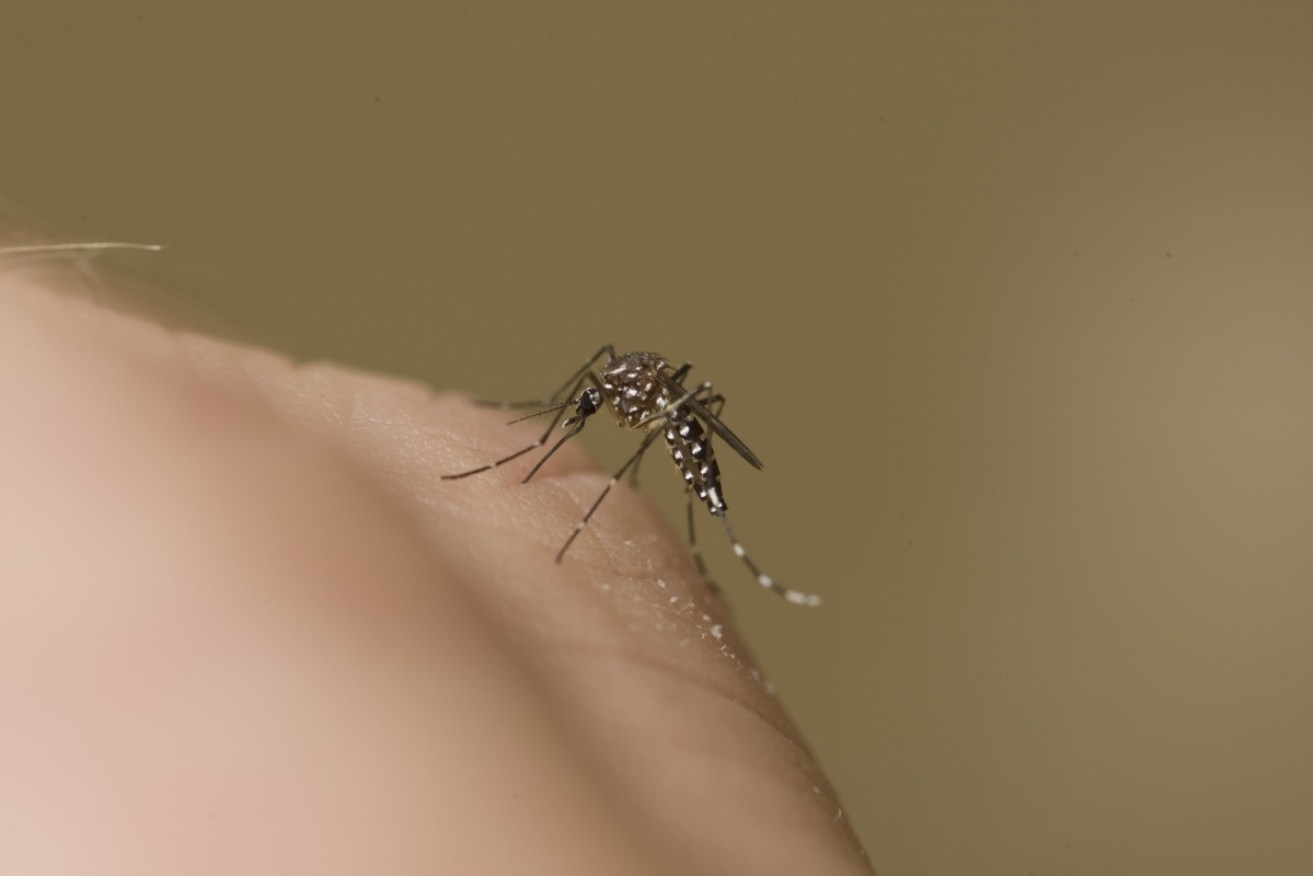Victorian man dies from ‘code-red condition’ Japanese encephalitis

Three Victorians have so far died from the mosquito-borne Murray Valley encephalitis virus. Photo: AAP
A Victorian man has died from encephalitis as Australians are warned to take the risk posed by the condition seriously.
The state Department of Health said the man, aged in his 60s from northern Victoria, died on February 28 and an autopsy revealed the cause of death as Japanese encephalitis.
It is investigating how he contracted the virus.
“Our thoughts are with his family and friends at this incredibly difficult time,” a department spokesperson said in a statement on Tuesday.
“We strongly advise people take steps to limit their exposure to mosquitoes and avoid mosquito habitats, such as stagnant water.”
There have been seven confirmed cases of Japanese encephalitis in Victorian residents, including the man who died.
“Encephalitis is a code-red condition that remains under-recognised,” chief executive Ava Easton said.
“As Australia faces ongoing extreme weather conditions, we are urging all Australians to equip themselves with knowledge about this very real disease and to not dismiss it as a low-risk probability or something too rare to talk about.”
#Encephalitis affects every member of the family.
Siblings may have a difficult time understanding the impact it has on their brother or sister.
This animation aims to show how the encephalitis journey may be for a sibling.
Get more information 👉 https://t.co/SZjiGaqi5i pic.twitter.com/n9xw14L1JW
— Encephalitis International (@encephalitis) March 6, 2022
Dr Easton warned, given recent floods in Queensland and New South Wales, mosquito-borne viruses responsible for causing encephalitis “will be proliferating”.
It comes as the federal health department is investigating dozens of suspected JEV cases, with at least nine confirmed infections nationally.
NSW Health on Monday said two people from the Victorian border with confirmed JEV were being treated in hospital.
“Several more people in NSW are undergoing further testing, and more cases are expected to be confirmed over the coming days and weeks,” NSW Health said in a statement.
Japanese encephalitis virus is spread by mosquitoes after heavy rain. Find out more and how to protect yourself from bites.https://t.co/S2B3A5fGJI pic.twitter.com/B0E1WeaDNo
— NSW Health (@NSWHealth) March 6, 2022
One Queenslander has also been confirmed to have the disease.
Four South Australians are “strongly suspected” to have JEV, all of whom have required admission to hospital, SA Health said in a statement.
In recent weeks, JEV has spread to dozens of piggeries across Queensland, NSW, Victoria and South Australia.
Federal Agriculture Minister David Littleproud said the disease was in 42 piggeries across the country.
“It’s been pretty constant for the last week, but we are monitoring,” he told ABC Radio National on Monday.
Last week, Australia’s chief medical officer declared JEV as a nationally significant communicable disease incident, triggering extra resources for states and territories.
JEV spreads to humans through mosquito bites and cannot be transmitted from person to person, nor by eating pork products.
It has been more than 20 years since JEV was detected in humans. The last outbreak was in Australia’s tropical north in 1995.
In most cases, human infection with JEV is asymptomatic, but about one per cent of infections can progress to serious disease including brain inflammation.
Two vaccinations are available for protection against JEV in Australia, with older people and those aged under five at a higher risk of developing a serious illness.
Anyone working or camping in regional parts of Australia with high mosquito activity is warned to use repellent and cover up with loose-fitting clothing.
-AAP








